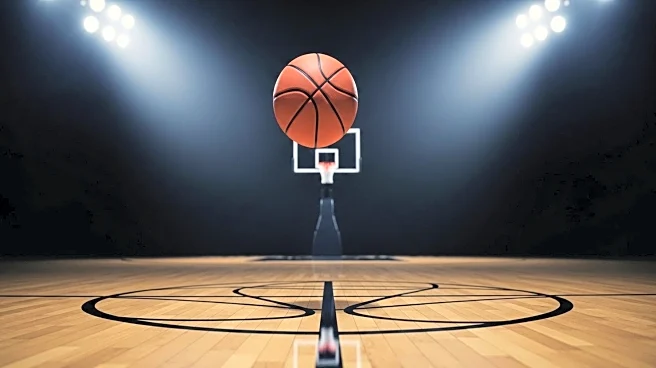What is the story about?
What's Happening?
Dream Team II, representing the United States at the 1994 FIBA World Championship, faced criticism for excessive showboating during the tournament. Unlike the original Dream Team of 1992, which was led by Magic Johnson, Larry Bird, and Michael Jordan, the 1994 team was noted for its over-the-top celebrations and perceived arrogance. The Australian press, among others, highlighted the team's behavior, describing it as embodying the 'Ugly American syndrome,' a stereotype often associated with U.S. athletes and tourists abroad. Despite their undeniable talent, the team's actions were seen as brash and disrespectful, overshadowing their athletic achievements. Coach Don Nelson and veteran players like Dominique Wilkins and Joe Dumars attempted to moderate the younger players' behavior, but the generational shift in attitudes was evident.
Why It's Important?
The criticism of Dream Team II's behavior at the 1994 FIBA World Championship underscores the cultural and generational shifts within American sports. The team's actions sparked a debate about sportsmanship and the image of American athletes on the international stage. While some viewed the showboating as youthful exuberance, others saw it as arrogance, potentially reinforcing negative stereotypes about Americans abroad. This incident highlights the broader implications of how sports teams represent their country and the balance between confidence and respect in international competitions. The event also reflects the evolving nature of sports marketing and self-promotion, as younger players embraced the spotlight in an era where media coverage was expanding.
What's Next?
The legacy of Dream Team II's showboating at the 1994 FIBA World Championship may influence future U.S. teams in international competitions. As sports continue to globalize, American athletes may face increased scrutiny regarding their conduct and representation of national values. Coaches and sports organizations might emphasize the importance of sportsmanship and cultural sensitivity to avoid reinforcing stereotypes. Additionally, the incident could lead to discussions on how generational differences in attitudes and behaviors are managed within teams, particularly in high-profile events.
Beyond the Headlines
The showboating controversy surrounding Dream Team II also touches on the ethical dimensions of sportsmanship and national representation. It raises questions about the responsibilities of athletes as ambassadors of their country and the impact of their behavior on international perceptions. The incident may prompt reflections on the cultural dynamics within sports teams and the role of veteran players in guiding younger athletes. Furthermore, it highlights the potential for sports to serve as a platform for cultural exchange and understanding, emphasizing the need for respectful engagement in international arenas.














